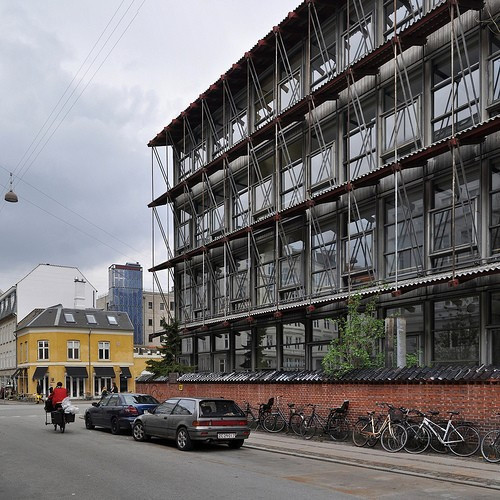OECD to Northern Europe: Raise Your Property Taxes!

Copenhagen. Source: flickr.com/seier
The Organization for Economic Co-operation and Development released a report on Tuesday calling on Germany to raise its property taxes dramatically and reduce taxes on labor. The group, whose membership is made up of 34 of the world's leading market economies, also made similar recommendations for Denmark, Norway and the UK over the past month.
For Germany, the organization recommended tripling its property taxes, while reducing its wage taxes and social security contributions, which currently make up 64 percent of total tax revenue, compared with the OECD average of 52 percent, according to the German language Immobilien Zeitung. Property taxes, meanwhile, amount to only 1 percent of total revenue collected, against an OECD average of 3 percent. The group also called on Germany to reform its assessment mechanisms, as many properties are valued far below their true market worth.
On Wednesday the OECD also called on Norway to raise its property taxes and eliminate its mortgage interest deduction, Dow Jones reported on Wednesday. It advised the Scandinavian nation to reconsider its implicit tax subsidy on owner-occupied housing, which imposes distortions on savings, with taxation on owner-occupied housing going as low as 0 percent in some cases.
The International Monetary Fund also made a similar recommendation to Norway this month (.pdf):
One structural factor behind high mortgage debt in Norway is the very favorable tax treatment provided to owner-occupied housing: mortgage interest is tax-deductible, the tax on imputed rent was abolished in 2005, and effective rates of property taxation are amongst the lowest in the OECD. Gradually reducing the implicit tax subsidy for owner-occupied housing-perhaps by introducing a fixed nominal cap on the amount of a mortgage that is eligible for interest deduction and by bringing property tax valuations closer to market valuations-could free resources for productivity-enhancing tax cuts, improve progressivity, and bolster financial stability by reducing risks associated with excessive mortgage debt.
The two groups' advice, however, was rebuffed by Norway's minister of finance, Sigbjorn Johnsen, who said at the press conference on Wednesday: I have no plans to increase housing taxes.
Denmark was subject to the same advice last month, with the Nordic Labour Journal reporting that the OECD advised the country to cut income taxes and increase property taxes. The Danish government plans to incorporate some of the OECD's recommendations into its 2012 tax reform, but a property tax hike will not be on the table. As the NLJ writes, [t]his is because property taxes were ring-fenced in the coalition agreement covering this parliamentary term.
Britain also got the same advice from the OECD in January, when it suggested an overhaul of the nation's property and council tax systems, according to the Guardian:
[OECD economist Romain] Duval said Britain's council tax regime was highly regressive and needed reform. In England, the tax liability for properties over £320,000 is only twice the liability for properties of £70,000 and three times the liability for houses under £40,000. Low-income households are entitled to a council tax benefit. However, the takeup is only around 65%.
Duval said the OECD advocated a replacement with a property tax based on current market values or a land tax.
The OECD has been a strong proponent recently of land value taxes, which date back to Adam Smith but were most vigorously promoted by 19th century economist Henry George. He promoted a land value tax—which is assessed on the unimproved value of underlying land, not penalizing intensive development like many property taxes today—as a replacement for all tariffs and levies, however the OECD has settled on a more moderate position, instead advocating a shift in emphasis away from other taxes and towards the land value tax.
Land value taxes can be tricky because of practical difficulties in estimating a plot's value, especially if it is a unique piece of land, or if land parcels like it do not change hands very often. Newer computer-assisted methods of land appraisal have made this job easier, though, and many countries around the world have adopted the tax.
© Copyright IBTimes 2024. All rights reserved.




















